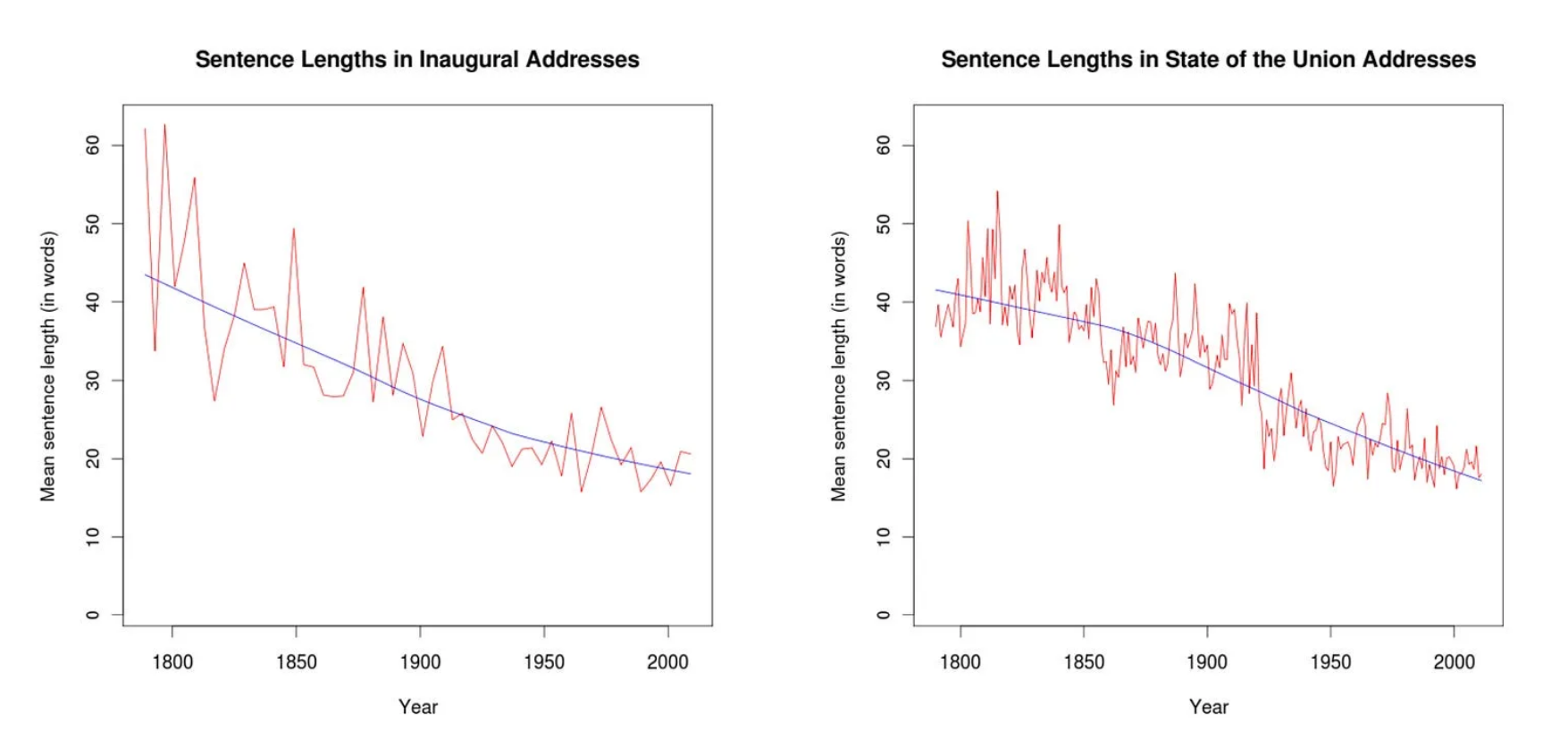Short Sentences Didn’t Kill Good Writing, Lazy Ones Did
Sentences have gotten shorter. Way shorter. In the 1700s, the average English sentence ambled along for 40–50 words like a drunk uncle telling a fishing story. Today, we average 15–20 words before we feel the need to hit “period” and move on with our lives.
This isn’t some “vibe shift” it’s measurable. Sentence lengths have steadily declined for over 300 years, across novels, newspapers, and academic papers alike. Here’s a political example.

But showing what is is only worth doing if we unpack the why. So, why has this happened? These probably a few contributing factors but one main one.
Contributing factors:
- Increase in literacy rate meant more people reading and lowering the average reader’s ability etc.
- Words cost money and as printing presses printed and editors edited, words became an expense on the ledger. After all, Twain, Whitman, Hemingway, and Steinbeck were all journalists first.
- Reading aloud transitioned to reading silently. Dickens, for example, included a lot of punctuation with the orator in mind.
Main reason:
- But the main reason is probably because cognitive science figured out that long, twisty sentences burn working memory faster than a bad episode of The Bachelor. And then readability formulas like Flesch-Kincaid started penalizing the hell out of writers for taking too long to land the plane.
But effective writing isn’t about short vs. long. It’s about the mix.
Short sentences are the caffeine. Long sentences are the conversation. Good writing and good fundraising needs both.
The best writers don’t just hack their sentences down to 7 words and call it a day. They vary the rhythm. They pulse. They know when to let an idea stretch its legs and when to punch you right between the eyes.
- Short sentences create urgency, emotion, tension.
- Longer sentences build connection, explain complexity, give a payoff.
The goal isn’t to write short, it’s to write clear, compelling, and human and you can’t do that if every sentence is either a bumper sticker or Victorian run-on.
What this means for fundraising copy: The secret isn’t short, it’s attention management.
The final scoreboard:
| Bad Fundraising Copy | Good Fundraising Copy |
|---|---|
| Every sentence short. Punchy. Boring. | Short sentences for urgency. Longer for emotion and connection. |
| Every sentence long. Endless. Snoozefest. | Short, short, long. Rhythm and flow. |
| No variation. Dead on arrival. | Natural variation. Alive and human. |
So, yes, sentence lengths have gotten shorter. Good. Keep them short enough to be read. But smart enough to vary the pulse, build the emotion, and guide the action.
Writing is music. If every note is the same, it’s not a song it’s a fire alarm.
Kevin



Love this Kevin. Great advice.
All best, Ken